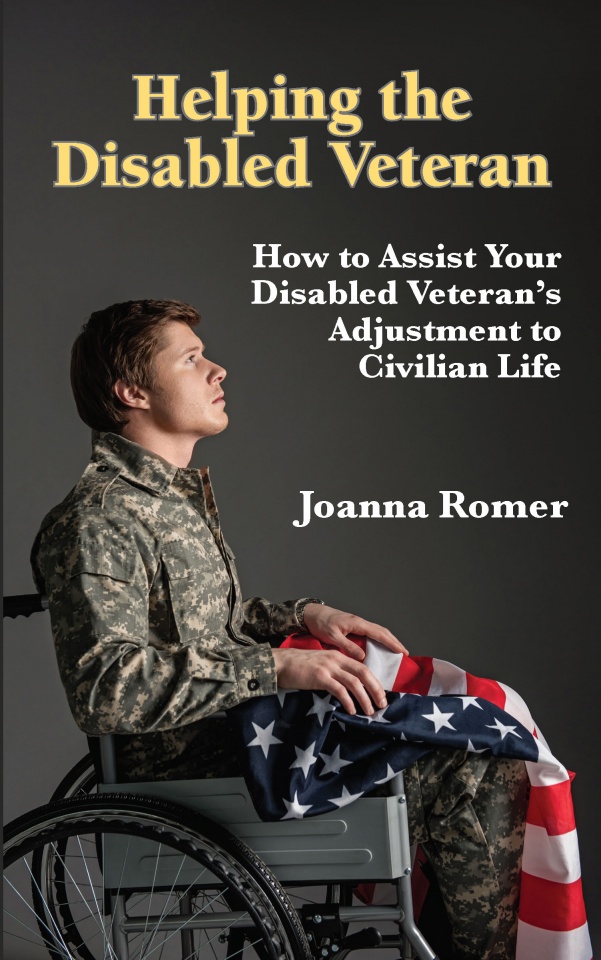Excerpt from Helping the Disabled Veteran (Romer): Holidays

Happy Fourth of July, 2020! In celebration of this day, we present an excerpt from Joanna Romer's popular book, Helping the Disabled Veteran.
Excerpt:
Holidays
The holidays may be a poignant time for your veteran, perhaps more than you realize. If he or she lost a friend in battle, or simply during the course of military service, your veteran may be reminded of that friendship with sadness during the holidays. Even though you’ve never met this friend, you should respect your veteran’s grief—the friendship may have been very close.
Your veteran may feel guilty if unable to do Christmas shopping. If they are confined to a wheelchair, for instance. You can offer to help—either by buying the items he/she picks out or by setting your veteran up on the computer to do some online shopping. It goes without saying that lending a little extra cash during this time would be welcome.
On the day of the holiday itself, don’t be surprised if your veteran wants to stay in his/her room rather than join an extensive family gathering. If the need for solitude is great, don’t insist on your veteran’s participation in the festivities. On the other hand, if your veteran just needs a little coaxing, or maybe some help getting spruced up, by all means pitch in and accommodate him or her.
At the holiday table, relatives who haven’t seen your veteran for awhile may try to ply him or her with questions. If you know this would be painful, you can ask in advance that the relative avoid this. If you see it happening anyway, be sure to jump in and change the subject—most relatives will take the hint.
If your veteran needs help eating, don’t make a big deal out of this—just sit next to him or her and quietly cut up the meat or serve the vegetables. Under no circumstances should you discuss your veteran and his/her difficulties in the third person, as if he or she weren’t there.
Holidays can be painful for many people—widows, widowers, parents who have lost children, and others. They can also be difficult for veterans, so be as kind and compassionate as you know how. Your veteran will appreciate it.
Guidelines for Holidays
Realize that holidays may be a time of special pain to some veterans who have lost comrades during battle.
Offer to help your veteran with activities such as Christmas shopping, or maybe a Valentine’s gift for a girlfriend. You can even offer to chip in some cash if you have it.
Don’t be surprised if your veteran doesn’t want to join the holiday dinner table, surrounded by relatives. Don’t make a big deal out of it; simply bring him/her a tray privately.
If your veteran does want to join in, offer to give him or her a hand getting dressed up.
Ask relatives in advance to avoid plying your veteran with questions during the holiday meal. If this starts to happen, jump in and change the subject.
If your veteran needs help eating, do so quietly. By no means should you discuss your veteran’s problems at the table as if he/she weren’t there! Be kind!
For more information on this book, including links to reviews, click HERE.
For more posts by and about Joanna and her works, click HERE.



Comments
Post a Comment